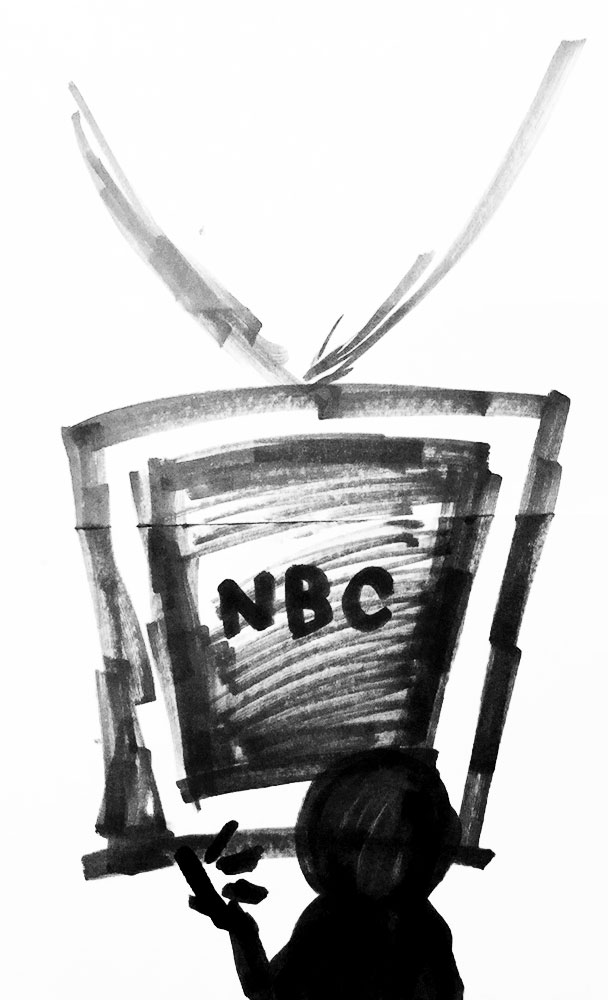Olympics coverage does not benefit participants
 Bloomberg News reported this week that NBC’s ratings and viewership for the Olympic Games were seriously underwhelming. In particular, the 18-49 year old age group was 25 percent smaller than four years ago, leading Bloomberg to conclude, as they so often do, that millennials are to blame for the dip in ratings. Likewise, the chief executive officer of NBCUniversal, Steve Burke, argued in June that if the ratings fell, it would be because “millennials had been in a Facebook bubble or a Snapchat bubble and the Olympics have come, and they didn’t know it.”
Bloomberg News reported this week that NBC’s ratings and viewership for the Olympic Games were seriously underwhelming. In particular, the 18-49 year old age group was 25 percent smaller than four years ago, leading Bloomberg to conclude, as they so often do, that millennials are to blame for the dip in ratings. Likewise, the chief executive officer of NBCUniversal, Steve Burke, argued in June that if the ratings fell, it would be because “millennials had been in a Facebook bubble or a Snapchat bubble and the Olympics have come, and they didn’t know it.”
The reality is this: the Rio Olympics revealed the hypocrisy of an Olympic Games that serves only to funnel money to a select few under the guise of international cooperation and relationship-building. So, while, to my knowledge, there was no concerted effort by millennials to not watch the Olympics, perhaps there should have been.
Burke is probably right that millennials were in a social media bubble during the Olympics; however, the idea that social media prevented 20-somethings from knowing the games came and went is simply untrue. In fact, for many of us, Facebook is how we experienced the Summer Olympics this year. If you’ve logged onto Facebook in the last few weeks, chances are you’ve scrolled past Ryan Lochte memes, Simone Biles’ floor routine and several think pieces about sexism in Olympic coverage. The hashtag #Love4GabbyUSA, articles about Grindr in the Olympic Village and innumerable videos of athletes’ proposals all went viral. Millennials weren’t ignoring the Olympics; millennials were watching the Olympics in ways that didn’t profit NBC.
Retweeting the video of Zac Efron and Simone Biles may seem unimportant, but the way in which the Games were experienced this year should be instructive not only for the networks that broadcast the Olympics, but also for the countries that host them and the organizations that execute them. The failure of NBC to ensure its coverage was accessible and engaging is only one sign that the world’s most popular sporting event is failing to keep up with the times. In the same way that Snapchat and Facebook democratized coverage of the sporting event and making it accessible to people in ways that NBC could not, the economics of the Olympic Games should be democratized as well.
As it stands now, the Olympics benefits very few. According to the Council on Foreign Relations, the only Olympic Games to produce a surplus for the host city were the 1984 Olympics in Los Angeles. In addition to spending billions, the host city does not even get to keep the revenues it makes — for example, the IOC receives almost half of the television revenue. After factoring in the displacement of people from their homes, redirection of public funds from social services and brutal policing in some communities, the costs facing a host country seem insurmountable.
Though not bearing the brunt of this unequal distribution of wealth, the Olympic athletes are also treated unfairly. According to the Washington Post, “While many athletes struggle to pay their rent or buy groceries, the billions the Rio Games will generate will flow into the paychecks and extravagant perks enjoyed by IOC members [and] USOC staffers.”
Until the Olympics becomes an event that promotes the equitable distribution of profit — to both athletes and host nations — perhaps the absence of millennial viewers will not be such a tragedy after all.
